Georgia
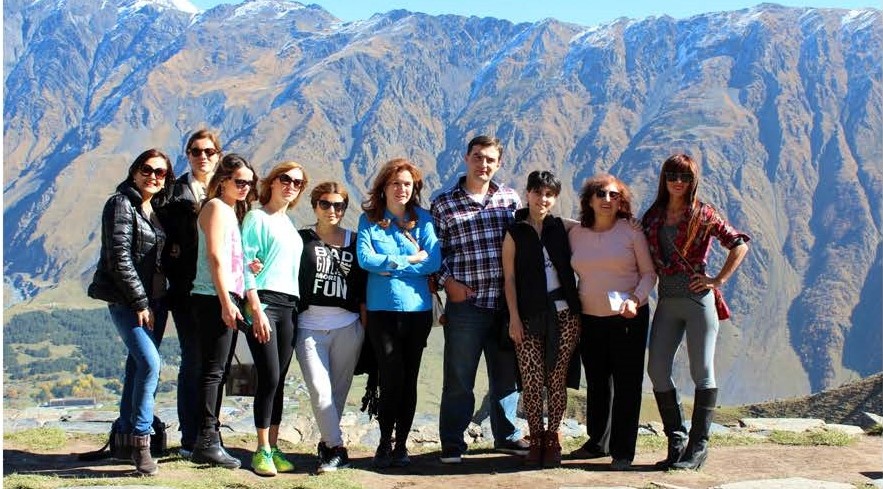

PH International in Georgia
PH International began working in the Republic of Georgia in 1989 with the Project Harmony – Tbilisi Pioneer Palace Youth Exchange. After subsequent exchanges and the launch of the Domestic Violence Community Partnership Program, PH opened a permanent representative office in Tbilisi in 2000.
PH has implemented 52 programs throughout Georgia through our nearly 25 years in Georgia. Our main expertise is at the crossroads of designing and administering innovative yet sustainable programs in the areas of community, professional, and educational development. PH has developed a strong network of NGOs and local partners throughout Georgia and currently works closely with sixteen NGOs through its several programs. PH has also worked with over 1,220 schools and many universities throughout the country. With a special focus on education, PH Georgia has developed partner relations with the Ministry of Education and Science of Georgia and the agencies established under the Ministry including the Teacher’s House/Teachers’ Professional Development Center and the National Examination Center.
Current Programs
- USAID Civic Education Program
- ACCESS English Language Program
- American Spaces Digital Literacy and Training Program
- English Language, USAID Civics & Economic Integration Program
- Phonichala Youth Development Program
- English Language Multimedia Online Course for English Teachers and Those Seeking to Become English Teachers
- Transcaucasia Professional Development for Teachers of the English Language
- Teaching Advancement Program: Teachers of Tomorrow
PAST PROJECTS
The purpose of the English Access Microscholarship Program (Access program) is to make the study of English more accessible to adolescents from an economically disadvantaged background. In addition to working on their language skills, the participants of the program become familiar with the aspects of US culture and develop deeper understanding of current issues in North American society. Greater sensitivity to cultural differences, coupled with the acquired language skills, enable the participants to take advantage of the opportunities that had previously been unavailable to them.
The program works with more than 400 economically-underprivileged students aged 13-17 in 18 locations of Georgia, providing after-school English classes, summer schools and enrichment activities at no cost to the students and enhancing English language skills thereby developing increased self-confidence, stronger critical thinking skills, and increased opportunities for study or employment.
Program is funded by US Embassy in Georgia and implemented in partnership with local NGO partners in the the regions of Georgia.
The Community Policing Initiative in Minority Regions of Georgia (CPI) aimed to increase legal awareness among local secondary school students and build community-police partnerships in the Samtskhe-Javakheti Region. The core of the program was focused on establishing and institutionalizing positive dialogue, consultation, and joint problem-solving between local police and local communities, with a particular emphasis on ethnic minority communities. It sought to overcome existing communication challenges both within and between communities and the police. Representatives of the community included school students, school administration, parents and teachers, local self-government representatives, sport groups, and religious and community leaders.
CPI utilized school and community interventions to foster greater police engagement with members of selected communities in the Samtskhe-Javakheti region. The initiative’s key program areas were legal education in schools and building police-community partnerships. The program provided police with training and support to enhance their personal and professional capacity in crime prevention through community policing approaches. Activities included classroom-based components to build trust and relationships between students and police and extended to community-based activities, aiming to reduce juvenile delinquency and establish constructive dialogue between the population of Samtskhe-Javakheti and police structures.
CPI was funded by the U.S. Department of State’s Bureau of International Narcotics and Law Enforcement Affairs and was implemented in partnership with the Ministry of Internal Affairs of Georgia and the Ministry of Education, Science, Culture, and Sport of Georgia. The program built on the experience of the Adjara Community Policing Initiative (ACPI), which PH International had implemented from 2015 to 2020 with financial support from INL.
The Schools, Community & Police Engagement (SCOPE) – Georgia program supported juvenile justice initiatives that aimed to foster positive, strong relationships between law enforcement, secondary school students, and the local community. The program emphasized supporting community policing approaches and raising awareness about issues such as trafficking, domestic violence, bullying, and cybercrime as they specifically relate to juveniles.
SCOPE-Georgia utilized an integrated approach that involved educating juveniles about the law and careers in law enforcement/legal-judicial fields, building positive relationships between juveniles and law enforcement authorities, increasing police capacity in primary and secondary crime prevention through community policing approaches, and developing community outreach programs focused on key juvenile justice issues.
As a result:
- Juvenile delinquency decreased as youth gained a greater understanding and respect for the rule of law, legal issues, law enforcement, and criminal investigation.
- The capacity of police to implement effective community policing initiatives was increased.
- Greater community awareness of legal issues was achieved, addressing trafficking, domestic violence, bullying, cyber security, and cybercrime.
SCOPE was funded by the U.S. Department of State’s Bureau of International Narcotics and Law Enforcement Affairs.
The multi-year Civic and Tech through English Language (CTEL) Program aimed to improve the English language skills of ICT and civics teachers in the regions of Adjara, Kakheti, Samtskhe-Javakheti, and Shida Kartli. The program sought to enable these teachers to collaborate with English language teachers to learn and apply integrative, team-teaching methods in their schools. CTEL provided English language training to ICT and civics teachers, as well as training in integrated learning and teaching techniques to support new teaching teams of English, ICT, and civics teachers, along with small extra-curricular projects and activities in selected pilot schools.
The goal of CTEL’s Integrated Teaching Methodology workshops was for Civic Education, Technology, and English teachers to learn and apply integrated teaching and learning techniques and approaches, allowing them to offer students experiential learning opportunities in democratic practices, as well as English and technology use. In teams, participating teachers developed instructional approaches and lessons supporting learning objectives from all three areas, including one plan by the conclusion of each workshop to share with peers. Following each workshop, teams delivered the lessons they developed and received feedback on their delivery. Reflection and ongoing improvement were key components of the workshop cycle to help participants continue building their skills in integrated teaching and learning.
As a result of the program:
- 96 teachers of Civics and ICT in 48 public schools in Adjara, Kakheti, Samtskhe-Javakheti, and Shida Kartli improved their English language skills to the pre-intermediate/B1 level of language competency.
- 120 teachers of Civic Education, ICT, and English Language in 48 public schools in these regions learned to plan and conduct lessons using integrated teaching and learning techniques, enabling them to merge English Language, Civics, and ICT content in one class.
The CTEL program was funded by the U.S. Department of State’s Bureau of Educational and Cultural Affairs and was implemented in partnership with Georgetown University’s School for Continuing Studies English Language Center.
The goal of Georgia CALLS was to prevent and reduce the recurrence of juvenile delinquency and to strengthen a fundamental shift within the police, courts, and communities toward restorative justice elements in the Republic of Georgia. Although Georgia had made remarkable progress in adopting policies that brought it closer to international practices in juvenile justice, there were also practices in the country founded in authoritative approaches that had the potential to undermine restorative justice efforts and generally alienate youth, leaving them more vulnerable to negative influences.
As the name indicated, the Georgia Community Action and Linkages for Legal Socialization program focused on building joint efforts between the government, communities, local NGOs, the private sector, and the international community for strong prevention programs and support for the expansion of alternative justice approaches. Georgia CALLS encouraged schools and community groups to plan for and adopt new programs to reduce delinquency, providing access to training and materials that supported those activities. Programs cultivated police as positive influences in the lives of youth and reinforced community policing. Other components strengthened the expansion of the Government’s pilot Diversion and Mediation program for juveniles throughout the country.
Georgia CALLS was funded by the U.S. Department of State, Bureau of International Narcotics and Law Enforcement Affairs.
The Georgian Police as Leaders in Athletics for Youth (GE-PLAY) Basketball program was funded by the U.S. Department of State’s Bureau of Education and Cultural Affairs under the SportsUnited International Sports Programming Initiative, and implemented by PH International. The program took place from September 2014 to December 2015.
The goal of the GE-PLAY Basketball program was to inspire and help officials and community groups in Georgia adopt policies and approaches that promoted the development of community-based youth sports programs. Building on PH’s work in the GE CALLS program, youth sports initiatives drew upon local police and others as resources to provide positive opportunities for youth aged 7-17 to practice leadership, responsibility, teamwork, healthy living, and self-discipline.
PH conducted a two-way sports and cultural exchange with participants (adults and youth) from Georgia and the United States. In early 2015, ten officials and youth practitioners from Georgia visited the U.S. and were introduced to approaches and options for community-based youth sports programming, with special emphasis on program models that brought youth and police together. Exchange participants returned home to develop and execute action plans resulting in 10-15 community-based sports initiatives that served as pilot and demonstration programs for a broader effort in the future. In early summer 2015, sixteen Americans, including one boys’ and one girls’ basketball team, coaches, and police officers involved in sports programming, visited Georgia to provide added technical assistance, conduct workshops and clinics, and build momentum for the programs being developed.
USAID-funded Applied Civic Education and Teacher Training Program (ACETT) was implemented by PH International in partnership with the Centre for Training and Consultancy (CTC) and 11 regional partner NGOs from 2010 – 2014. The program was also supported by the Ministry of Education and Science of Georgia.
ACETT worked to improve the quality and scope of school-based civic education as a means to positively influence the knowledge, attitudes and behaviors of youth (and, through their example, those of the broader community) as active participants in Georgia’s democratic society. ACETT involved a number of program areas, including curriculum development, teacher training, encouraging and promoting student civic involvement, and strengthening recognition of the importance of civics education. The program reached out to 740 schools, 30% of all schools in Georgia. Successes achieved by the program include the following:
– development of 50-hour accredited training course for civics teachers titled “Teaching Democratic Citizenship”;
– passing 813 civics teachers from partner schools through this accredited course and conducting workshops for 736 school principals about the importance of school-based civic education;
– creating and supporting a National Forum of Civics Teachers, which now brings together more than 500 teachers from all regions of Georgia. Organization aims to advance civics teachers’ professional development, promote experience-sharing among teachers through different activities, which include: trainings and master-classes by American and Georgian experts, civics teacher roundtables to discuss critical professional issues, regional conferences and meetings of civics teachers to share experiences, open lessons in civics and organization of the National Annual Fair-Conference of Civics Teachers.
– presenting a Best Civics Teachers of the Year Award annually starting from 2012;
– development of the four sets of supplemental civics textbooks, which were introduced to 740 schools in Georgia. Translation of these materials into Azeri and Armenian for use in schools teaching in these languages;
– organizing summer civics camps for 1,115 students and teachers; conducting civics integration camps for 200 Georgian and ethnic minority youth to facilitate implementation of joint initiatives;
– developing a manual for school civics clubs and helping to establish over 500 school-based civics clubs in which students work with partners to resolve the critical issues of their schools and communities;
– awarding the most successful school-based civics clubs with audio-visual equipment that can be used to enhance their activities;
– funding and supporting 555 mini-grant projects that promote civic participation by students and teachers; involving local state and private organizations as contributors in these projects;
– training 711 young leaders and 53 teachers in the use of social media for civic engagement;
– training 170 students (and teachers) in debates and public speaking, who then have trained the peers in their respective schools and regions;
– organizing youth forums with participation of more than 3000 students nationwide to promote involvement of youth in local decision-making processes;
– and creating a civics and citizenship web portal www.civics.ge which brings together resources and news for about civic education and civic engagement for youth, their teachers and parents;
Final external evaluation of the program, through which 1,300 respondents were surveyed nationwide, showed that ACETT program achieved its goals successfully. This survey confirmed students have gained important knowledge and practices, through their participation in ACETT program, which are essential for democratic citizenship.
PH International (PH) was awarded the 2014-2016 English Language through Civic Education (ELCE II) program by ECA, DOS. The goal of the 2014-2016 ELCE II program was to improve English language teaching and learning in Georgian schools in order to support Euro-Atlantic integration, promote Western democratic values, improve students’ capacity for higher and continuing education, and increase marketable job skills among Georgian youth. The direct beneficiaries of this program in Cycle 1 of Program Implementation were Georgian teachers of English for grades 1 through 12 and the students they taught. This project continued the U.S. Embassy/PAS’s use of English language instruction and acquisition programs to promote Western and U.S. values among a new generation of Georgian pupils.
In the first phase of the English Language through Civic Education program, PH, in partnership with Georgetown University and the English Teachers Association in Georgia (ETAG), worked with the Public Affairs Section of the U.S. Embassy in Tbilisi and the Ministry of Education and Science (MES) to develop a core training program for practicing English teachers.
Over two years, the program increased the capacity of 378 Georgian English teachers in seven regions. ELCE brought in American English Language Teacher Trainers (ELTTs) who worked with a core set of Georgian English teachers in each region on an intensive program to develop content-based, student-focused teaching skills that used civic and cultural themes to mobilize student engagement and participation in English language learning. These trained teachers served as models for their colleagues, and 30 of the best received additional training in the U.S. as peer teacher trainers under the follow-on Intensive Course for Teachers of English (ICTE) program, which also gave 20 English teachers who had not worked with ELTTs a “jump start” to using the ELCE curriculum through an intensive teacher training summer camp.
The objectives of the program were:
- To enable Georgian English language teachers in four additional regions (Tbilisi, Samtskhe-Javakheti, Mtskheta-Mtianeti, and Racha-Lechkhumi and Kvemo Svaneti) to demonstrate enhanced skills and improved classroom instruction for English language acquisition and civic education through English.
- In coordination with PAS and MES, to increase access of English teachers and classes to expanded materials and resources that complemented the national curriculum, supported language acquisition skills, and introduced Western and U.S. information, culture, and concepts at each grade level.
The PH Team developed a program that achieved these objectives through a focus on five key results:
- A total of 120 Georgian English teachers (80 practicing teachers working with children in grades 1-12 and 40 pre-service teachers) graduated from the ELCE training program in Tbilisi and Samtskhe-Javakheti with advanced skills in content and delivery.
- 20 practicing teachers from Racha-Lechkhumi and Kvemo Svaneti and Mtskheta-Mtianeti increased their capacity to deliver student-centered and content-focused English language instruction through civic education.
- At least 20 new supplemental handouts, lesson plans, multimedia presentations, or other materials developed by Georgian teachers were nominated by their peers for semi-annual prize competitions.
- 80 schools expanded their equipment base to enrich the English language learning experience in listening, reading, writing, and speaking.
- Two universities expanded materials and approaches to better prepare new English teachers for learner-centered and content-focused language acquisition.
The ELCE II program consisted of four components:
- Teacher Training, Coaching, and Advising
- Ongoing expansion of supplemental materials and teaching resources
- Distribution of equipment to enrich learning
- Promotion of new approaches and lessons learned to the broader educational community.
The Intensive Course for Teachers of English (ICTE II) Program, funded by the U.S. Department of State’s Bureau of Educational and Cultural Affairs (ECA) and the U.S. Embassy in Georgia, aimed to build local capacity and sustainability on the foundation begun in ICTE I. The focus was on further enhancing the quality of teaching and learning in Georgian schools by ensuring the professional knowledge of English language teachers, establishing high performance standards, raising the professional status of teachers, expanding the existing Georgian TOT capacity, and supporting expert Georgian teachers to take the lead as expert trainers and mentors for other Georgian teachers of English.
PH International (PH) partnered with World Learning’s School for International Training Graduate Institute (SIT) to provide specialized training for Georgian school teachers of English, enhancing their theoretical and practical knowledge and fostering a deep understanding of issues related to teaching English as a foreign language, as well as the relationship between the language and Western culture and values. The PH-SIT Team drew upon teacher training materials and approaches used in ICTE I and the ELCE program.
A Teacher Training Summer Camp (TTSC) in Georgia condensed ELCE professional development into a 50-hour intensive course, giving 20 less experienced Georgian English teachers a week of specialized training in modern learner-centered teaching techniques for language learning. The course provided supplementary lessons and materials that reinforced English language acquisition through content on American and Western culture and civic values, and offered applied learning opportunities with students in an English language summer camp.
A Training of Trainers Summer Institute (TOTSI) in the United States developed 22 experienced ELCE I, ELCE II, Access, and ICTE I TTSC teachers as peer trainers capable of training other teachers in modern learner-centered teaching techniques combined with English language and cultural instruction. Finally, mentoring and support during the follow-on period used social media, networking, and a series of incentive opportunities to encourage and challenge participants to fulfill their commitments to apply their learning and expand the impact of ICTE II.
The Georgian Legal Socialization Program (GLSP), implemented by PH International and funded by the U.S. Department of State Bureau of International Narcotics and Law Enforcement Affairs (INL), began in 2008, in partnership with The Ministry of Education and Science of Georgia and The Ministry of Internal Affairs of Georgia. The program sought to increase public safety, juvenile crime prevention and civil society development through raising the youth awareness in juvenile justice matters, building/ promoting trust among the students, teachers and law enforcement officers, and the introduction and promotion of principles of restorative justice.
The program included a range of components. Legal Culture Classes brought together police officers and civic education teachers in the classroom in approximately 100 public schools in 6 regions throughout Georgia, to jointly conduct specialized 7th and 9th grade GLSP curriculum. The Social Media in Schools (SMS) component taught youth basic social media skills using PH’s SMS curriculum, allowing the students to transform the knowledge acquired during the classes into practical actions for juvenile crime prevention though use of social media. A third school-based component, Peer Clubs of Legal Education, encouraged a peer education approach and project-based activities. Curriculum were translated to Azeri and Armenian languages for use in schools in minority regions.
In addition to these school components, GLSP played a significant role in introducing the concepts of restorative justice to Georgia, leading to a Juvenile Diversion and Mediation Program introduced by the Ministry of Justice of Georgia in 2010. GLSP organized trainings for representatives of governmental institutions and mediators involved in the Diversion and Mediation Program and facilitated the sharing of international experience by professional exchanges to the US and Armenia as well as by bringing foreign experts to Georgia.
The Community Connections program in Georgia was administered by PH International and funded by the United States Agency for International Development (USAID). Community Connections promoted public diplomacy, economic growth and the development of civil society in Georgia and Eurasia through an exchange of experiences, culture and values among program participants, American families, host businesses and local communities. A practical internship program that combined seminars, workshops, site visits, and meetings with American professionals with hands-on practical internships, Community Connections provided participants with an experience lasting three to five weeks in the United States and with an American host family experience.
The Community Connections program:
- Provided participants with professional training and exposure to the day-to-day functioning of a free market system
- Encouraged public-private partnerships in Georgia by including private sector and government participants on US visits
- Created links between US and Georgian regions and communities
The program built local capacity and sustainability among Caucasus teachers by: 1) creating a cadre of highly qualified, confident professionals who were committed to actively contributing to the development of English language teaching and learning communities in their countries and regions; and 2) further institutionalizing and sustaining high-quality English language teacher training in the Caucasus region. This was achieved by using experienced local professionals trained as teacher trainers, who served as expert trainers and mentors for English language teachers in their schools and communities.
The Momavlis Taoba (Future Generation) Program was implemented by PH International with financial support from the United States Agency for International Development (USAID). The program was carried out in partnership with the Centre for Training and Consultancy and 11 regional partner NGOs, involving 480 schools nationwide across all regions of Georgia. The purpose of MT was to 1) promote greater civic engagement among young people and 2) enhance civil society’s role in promoting transparent and accountable governance at both the national and local levels by expanding and institutionalizing secondary school civics education curricula and practical applications.
The Adjara Community Policing Initiative (ACPI) fosters closer cooperation in 10 rural communities of the Adjara region, with particular focus on cooperation among religious groups and between the community and local police departments. The core of the program supports building and institutionalizing positive dialogue, consultation, and joint problem solving between local police and rural communities, including religious communities and minorities. The program seeks to overcome existing communication challenges within communities and between communities and the police. Representatives of the community include school students, administration, parents and teachers, representatives of local self-government, sport groups, and religious and community leaders.
ACPI utilizes school and community interventions to lead greater engagement of police with the members of selected communities of Adjara, hence, the two components, legal socialization in schools and building police-community relations, are key program areas of the initiative. Providing police with training and support to incorporate and improve their own personal and professional capacity to accomplish these community policing objectives are key. Activities build from classroom based components (building trust and relationship between students and police) and extend out to community based activities.
ACPI is funded by the U.S. Department of State, Bureau of International Narcotics and Law Enforcement Affairs.
PH International led a multi-country, multi-faceted effort to reduce the risks of radicalization among vulnerable residents of Azerbaijan, Georgia, and Macedonia. PH International, along with its key partners in each country—the Georgian Center for Strategy and Development (GCSD) in Georgia, the Center for Economic and Social Development (CESD) in Azerbaijan, and Moonshot CVE in Macedonia—implemented this initiative through a comprehensive online and offline campaign.
The campaign aimed to counter the messaging of international terrorist and violent extremist organizations in Azerbaijan, Georgia, and Macedonia while also working to prevent the risks of extremist messaging by addressing the drivers that contribute to these risks, particularly among young people. Building local capacity to sustain this effort was key to the overall success of the project. As part of the initiative, a special training curriculum was developed and used in Georgia and Azerbaijan to train community members, including influencers, on what P/CVE (Preventing and Countering Violent Extremism) is and why it is crucial to counter the messaging received from violent extremist organizations.
“Tech4Good” was a Microsoft initiative aimed at empowering organizations worldwide to better serve their communities. In 2017, PH International was selected in Georgia to implement the project “Georgian NGOs to Better Serve Their Communities.” The goal of the project was to introduce world-class solutions and technology programs to Georgian NGOs, supporting their efforts to better serve their communities.
Leveraging its extensive NGO network nationwide, PH International mobilized and engaged various local NGOs and media representatives in the project activities. The organization provided information and guidance on how to register to obtain Microsoft product donations and discounts, with a special emphasis on Microsoft’s cloud technologies, such as Office 365 and Azure.
YES – Georgia represented a targeted public-private partnership that built institutional frameworks and models to facilitate greater economic participation of youth through increased opportunities for self-employment via youth start-ups and for employment in established companies.
The program’s goals were:
- To enhance entrepreneurship development and capacity-building for youth-led small enterprises through innovative forms of access to finance, knowledge, and expertise.
- To increase the employability of young people by offering relevant training, improving financial capabilities, providing new practical on-the-job training opportunities, and encouraging youth-friendly corporate practices.
- To create a discourse contributing to youth economic empowerment through a nationwide media campaign, as well as supporting youth-led enterprise networks and connecting them to similar networks internationally.
The project resulted in:
- The development of an open-source Youth Enterprises Training Manual, a non-formal educational module with session guides, instructions, and handouts. Six hundred young people from 20 regions of Georgia participated in the Youth Enterprise two-stage Training Program, offered by MFO Crystal Branch Offices in 20 locations of Georgia. As a result, 30 youth-led start-up enterprises were financed and supported.
- The creation of an Employers Guide to Internship and Youth-Friendly Practices tailored for 20 selected companies. This guide provided methods and tools for constructing effective on-the-job training programs, leading to sustainable youth employment. Four hundred young people undertook internships in selected companies.
- The launch of the website Crystal Crowd Video Academy, which provided access to online entrepreneurial resources, employment advice, access to finances, and engagement opportunities with local and international networks.
This USAID-funded joint initiative by Crystal Fund, PH International, and JSC MFO Crystal worked with an estimated 1,000 youth, ages 17-25, in 20 municipalities across Georgia.
PH was the only partner in the Community Connections global program funded by ECA, DOS that hosted groups as well as recruited for professional development opportunities in target countries. From 2000 to 2005 we hosted groups from more than a dozen countries on programs ranging from agricultural production to the arts. Participants typically spent 3 weeks in Vermont, staying with host families and having a series of meetings with relevant professionals, organizations and institutions appropriate to the theme and objectives for the exchange.
Funded by ECA, DOS, the Technology Ambassadors Program (TAP) was an innovative technology and leadership program for Future Leaders Exchange (FLEX) students studying in the United States. Using a variety of technologies, including weblogs and digital storytelling, students worked both online and in a Vermont workshop to create their own community development projects. TAP explored the benefits and uses of technology and the role of leadership in emerging democracies. The curriculum incorporated concepts of a civil society and demonstrated how technology can be used to enhance current and future initiatives throughout Eurasia. TAP graduated 90 students in three years, benefiting 12 countries, and created a network of motivated, inspiring and talented young adults who shared a desire to improve their own communities.
Funded by ECA, DOS, the program empowered women from across a given region or country to initiate change and improvements in their communities. Special focus areas were determined by the communities being served and included topics such as NGO development, mass media, women’s healthcare, prevention of domestic violence, and electoral politics.
Through educational workshops and training seminars focused on practical skills-building and mentoring, the programs developed the leadership qualities and capacity of women.
Program components included: a local needs assessment to identify key issues of importance to be directly addressed through workshops and training activities conducted; custom-designed Women’s Leadership Series workshops; Women’s Leadership Institutes focused on intensive leadership training for women; Women’s Mentoring Institutes that provided additional training for the top participants in the Women’s Leadership Institutes so that they could serve as mentors to other women and train them to conduct the Women’s Leadership Institute for additional women; strengthening the institutional capacities of existing women-centered groups and organizations; creation of a Women’s Resource and Training Center where appropriate; and, Inter-regional and/or International Conferences
A one-year pilot program, Internet Community Development in the Caucasus (Armenia, Azerbaijan, Georgia), a program of the US State Department, Bureau of Educational and Cultural Affairs, was designed to promote the use of the Internet as a democracy-building and community organizing tool for professionals in the Southern Caucasus.
The program fostered the development of business support, discussion on refugee issues, and assistance to internally displaced persons. The training and outreach activities of the program built the local capacity of professionals in these fields to use and create multi-language online resources such as online newsletters, discussion lists, interactive websites, web chats, and teleconferences. Experience from the pilot program was integrated into the core of the School Connectivity Programs.
The dynamics of domestic violence in eastern Europe were essentially the same as in the United States. What differed dramatically between these two cases, however, was the social awareness of the problem and the tools available to prevent and defend against acts of domestic violence. At the turn of the millennium, this problem in the former Soviet Union was aggravated by inherited cultural traditions, social structures, and norms of behavior that historically tolerated domestic violence.
In 1998, Project Harmony received a grant from the United States State Department to administer “The Domestic Violence Community Partnership Program.” This innovative two-year program brought together coalitions of domestic violence prevention and response experts from the United States, Russia, and Ukraine—later expanding to Georgia—to share strategies and develop community-based tools for increasing awareness of this problem and protecting women in culturally relevant and law enforcement-supported ways. Participants learned about collaborative models in the U.S. that established domestic violence community partnerships and were producing measurable and positive results. Working linkages between police, victim advocate groups, prosecutors, judges, health care professionals, family counselors, and schools were producing an effective coalition of community-based services to attack the systemic issues of domestic violence.
The program initially focused on Petrozavodsk and Volgograd in Russia, and in Odesa and Lviv in Ukraine. Based on the success of the first two-year initiative, Project Harmony received another grant in 1999 to continue the program for an additional two years and to extend the locations to include the cities of Irkutsk in the Far East of Russia, Uzhgorod in Ukraine, and Tbilisi in Georgia.
The Future Leaders Exchange (FLEX) program is one of the Department of State’s (ECA) longest lasting programs providing an opportunity for international high school students to spend a year in the United States, living with host families and attending American high schools.
The Semester Study Program brought teenagers from Russia, Georgia, Ukraine and Belarus to the United States for a semester of study in American high schools. Between 50 and 100 15-18 year old high school students each year participated in the program, hosted by families across breadth of the U.S. Participants without exception were bery thankful to PH, the USIA’s Freedom Support Act program, and most of all their host families for their experience. Follow-up surveys offered statements such as:
“When I got home, I had lots of ideas of things I wanted to do – like starting a student government, clubs for sports, and helping elderly people”
“We are going to try to start something here in Tomsk – going to orphanages and helping kids.”
This privately funded program provided youth exchanges for American teenage groups to Tbilisi and for Georgian teens associated with the Tbilisi Pioneer Palace to the U.S.
PH Georgia Staff
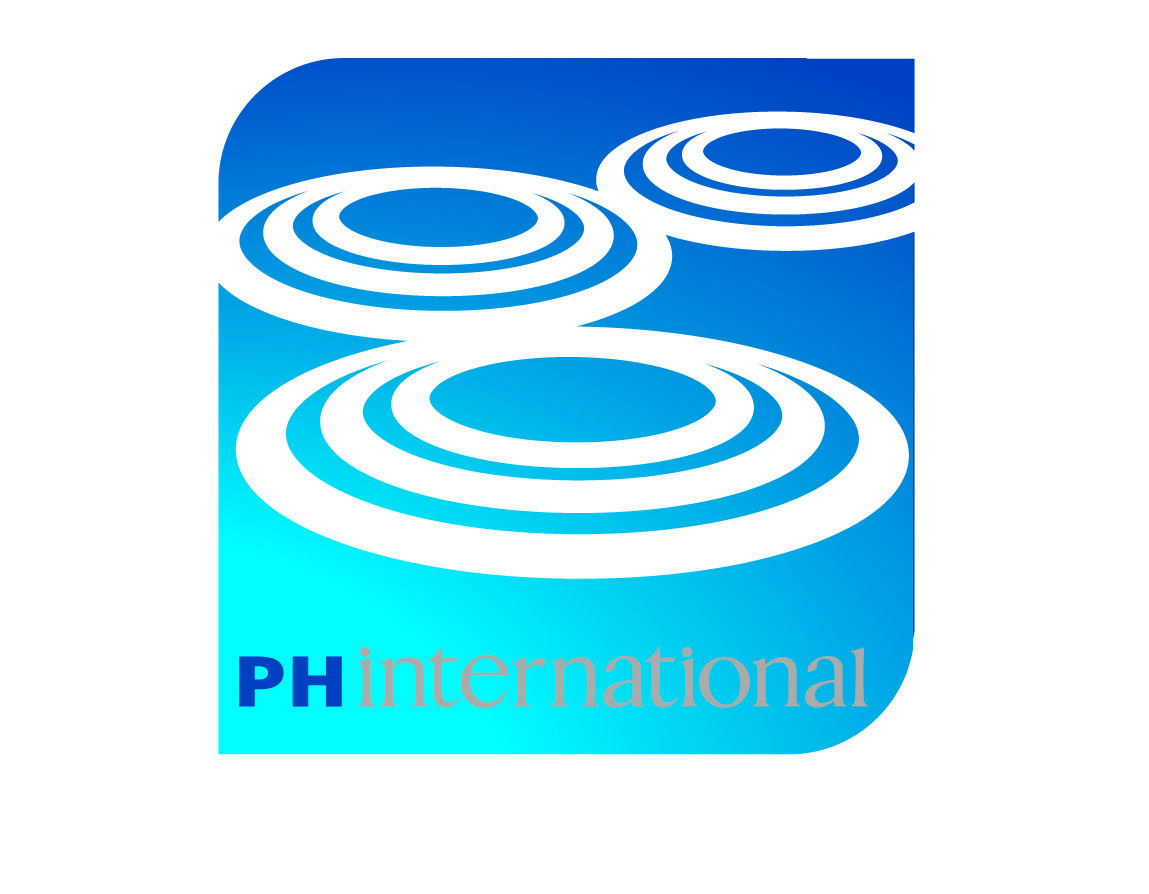
Ana Ruruna
MEL / CLA Coordinator

Anna Adamia
English Language Programs and Logistics Coordinator

Berdia Natsvlishvili
Country Director
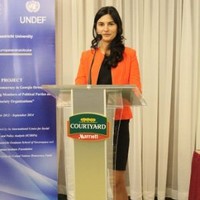
Elene Chkheidze
Private Sector Engagement Manager / CEP

Elene Tsibadze
Overseas Finance Manager

Elza Ketsbaia
Program Director
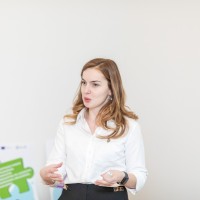
Gvantsa Ichkiti
Grants Coordinator / CEP

Mariam Khositashvili
Accountant

Marika Sikharulidze
Digital Citizenship Manager / CEP

Marina Ushveridze
Chief of Party, CEP USAID Program

Nana Ioseliani-Meissner
Director of English Language and Exchange Programs

Natia Meladze
Deputy Chief of Party, CEP

Nutsa Goguadze
Program Coordinator / ASDLTP

Salome (Ana) Chelidze
Finance/Admin Coordinator
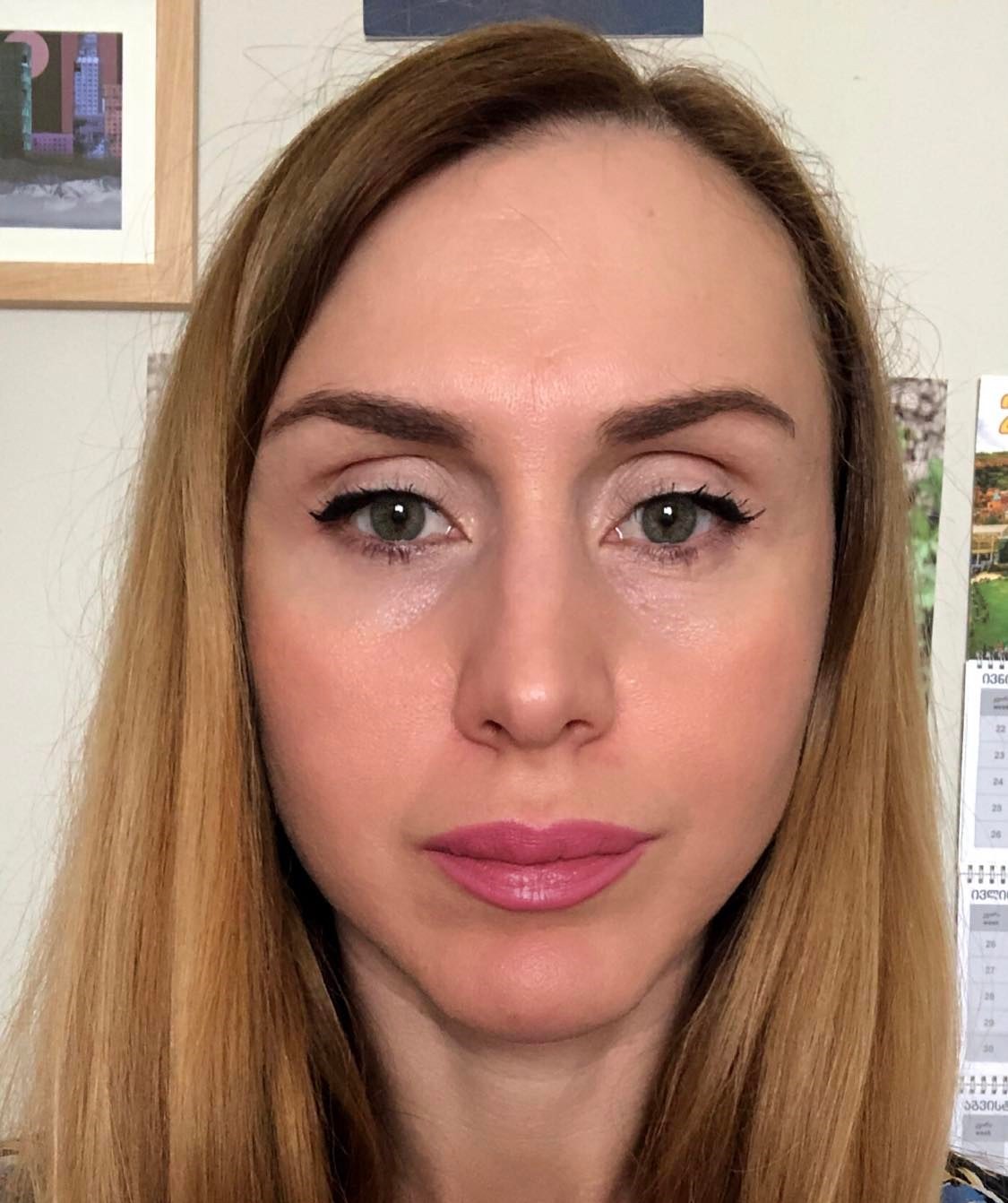
Tamar Gelashvili
Program Officer

Tamar Ioseliani
Finance Coordinator / CEP
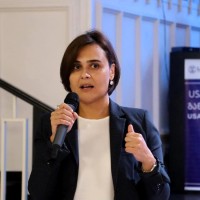
Tamar Pruidze
Partnerships Manager / CEP

Tinatin Bakradze
PR & Outreach Officer

Tinatin Ebanoidze
Programs Director
